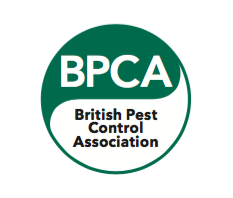Protecting Children and Pets When Treating for Pests
In Pests
Protecting Children and Pets When Treating for Pests
As a parent or pet owner, we know the safety of your loved ones is your top priority. Keeping your family and pets safe during a pest control treatment is important to us too. That’s why the products and methods we use ensure that your children and pets are protected.

At PEST UK we use two main pest control chemicals – insecticides and rodenticides:
Insecticides
Insecticides are used to kill insects and are virtually harmless to mammals. This is because insecticides disrupt nerve endings. Mammals are protected by a layer of body fat (which insects don’t have) that dissolves insecticide that it may come in contact with. Although it can be a slight irritant to your skin, contact with an insecticide is pretty much harmless to humans. In some cases, such as with bed bug sprays, we advise that there is no contact with the treated surfaces until they are completely dry to avoid the risk of irritating skin.
What’s more, the insecticides we use do not produce fumes. Therefore, any asthma or respiratory-related effects are significantly reduced.
Overall, the amount of exposure to insecticides during treatments is significantly low and unlikely to cause any issues to your family’s or your pet’s health.
Rodenticides
As the name suggests, rodenticides target rodents. Rodenticides largely consist of poisons. Unlike insecticides, rodenticides target mammals, so naturally, customers are likely to worry about these poisons coming into contact with their children and pets.
Firstly, to be able to poison anything larger than a rat or a squirrel, a huge amount of poison would need to be consumed. When our technicians ‘lay bait’, a small amount of poison is inserted into secure bait boxes. These boxes are then distributed around the affected areas. It is unlikely that this amount of poison would come in contact with any other than its intended targets.
What’s more, the rodenticides we use contain a taste deterrent. This means the poisons are unpalatable to any other mammals apart from rodents. So if your child or pet happens to place the poison in their mouth, they are likely to be immediately put off by the distinct taste.
In the unlikely event of a person or pet eating poison, there is a dye in the bait that will turn the consumer’s saliva a bright blue or red – depending on the rodenticide used. This will alert you to any possible consumption and enable you to take swift action. Despite the fact that small dosages are not seen to be harmful, it is advised that you consult a doctor or a vet as soon as consumption takes place.
On the occasion, we will also use traps to treat rodents. Traps are generally only used for squirrels and placed in areas inaccessible to people and pets, such as in lofts.
When children and pets are present, our technicians will ensure that bait and traps placed in secure locations out of harm’s way.
FAQs concerning pest control and children and pets
What if my pet eats an animal (such as a rat) that has already been poisoned?
This is known as secondary poisoning. Although the amount of poison that can be ingested from secondary poisoning is usually extremely small, we still advise you to ring a vet as soon as possible.
If insecticides and rodenticides are so safe why do technicians wear protective clothing?
Technicians wear protective clothing as they are subject to continuous exposure. Wearing protective clothing will help the technician avoid contact with insecticides on their skin. It will also prevent pests or insects from biting or attaching themselves to them.
What do I do if I come into contact with insecticides or rodenticides?
If your skin comes into direct contact with an insecticide or a rodenticide, wash the area immediately with water. Seek medical advice if irritation occurs.
What about chemical-free home methods?
Although pest control treatments may cause you concern, it’s important to deal with a pest problem if you have one. We do not advice to try to solve it yourself with over-the-counter, “DIY” products. Not only will these not work, but they could put your family at further risk.
Read our blog post on why DIY pest control doesn’t work here.
It is extremely important to remember that pests themselves pose a risk to your family’s health. If left untreated, pests can lead to the spread of diseases, contamination of food, and may even put your home at a fire risk (e.g. rats gnawing cables).
Speak to one of our qualified technicians if you have any concerns. They can help banish any worries and talk you through each procedure.
Disclaimer: This blog post should not be used to replace medical professional advice. If you are worried about ingesting or coming in contact with an insecticide or rodenticide, speak to a doctor or vet.
PESTUK

PESTUK are full members of the BPCA, the governing body for pest control in the UK. Using a BPCA member company ensures you have a qualified, fully insured company treating your pest problem.
Call us on 0330 100 2811 or email services@pestuk.com for free local pest control advice or to book an appointment for pest control services near you.
PESTUK have offices in Bracknell, Edgware, Salisbury, St Albans, Stevenage, Swindon, Thame, Wantage, Ware, and Watford.
For an updated price list for all of our services please click here.
NEXT/PREVIOUS:
Why London is crawling with rodents? »
Pests in Student Accommodation «

